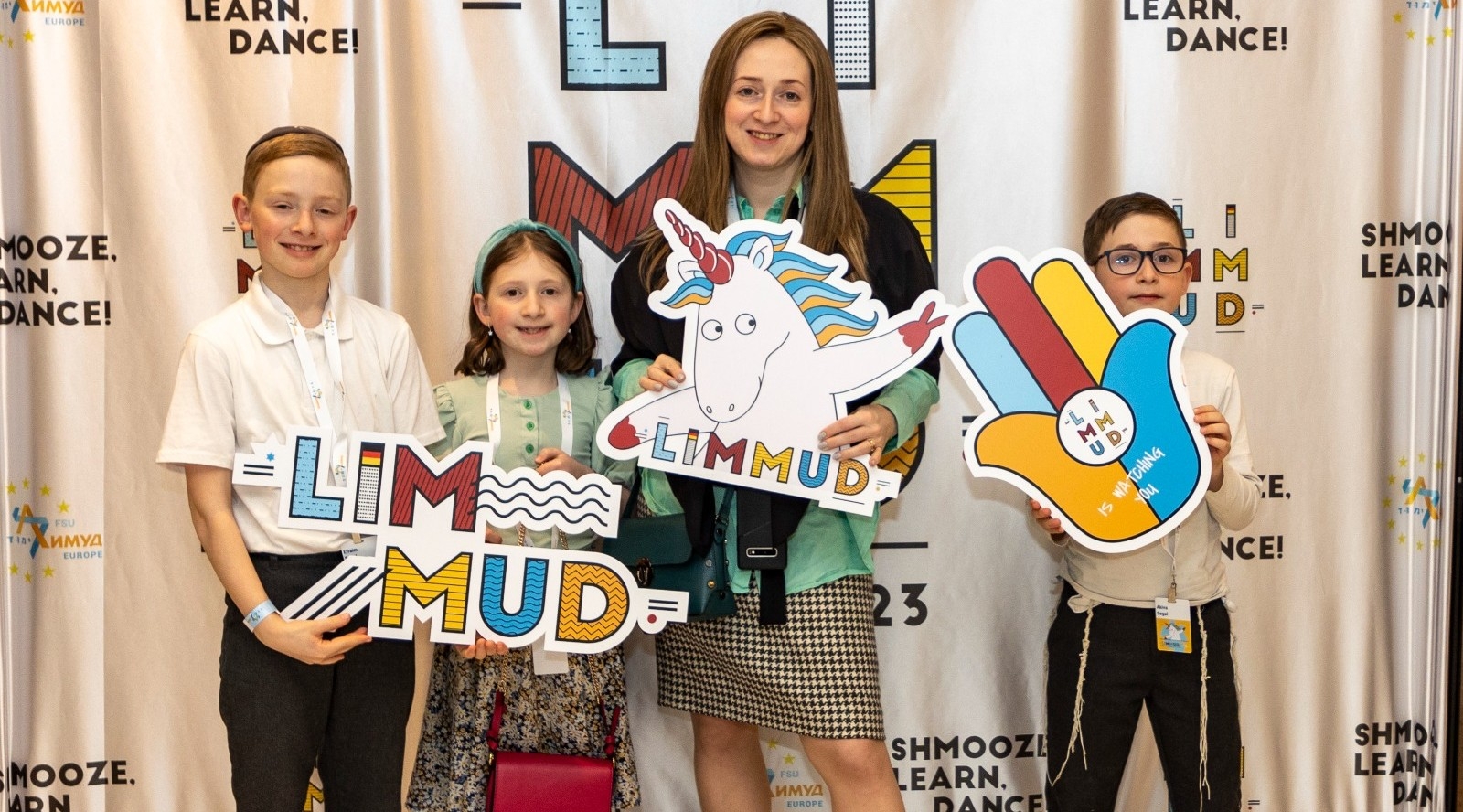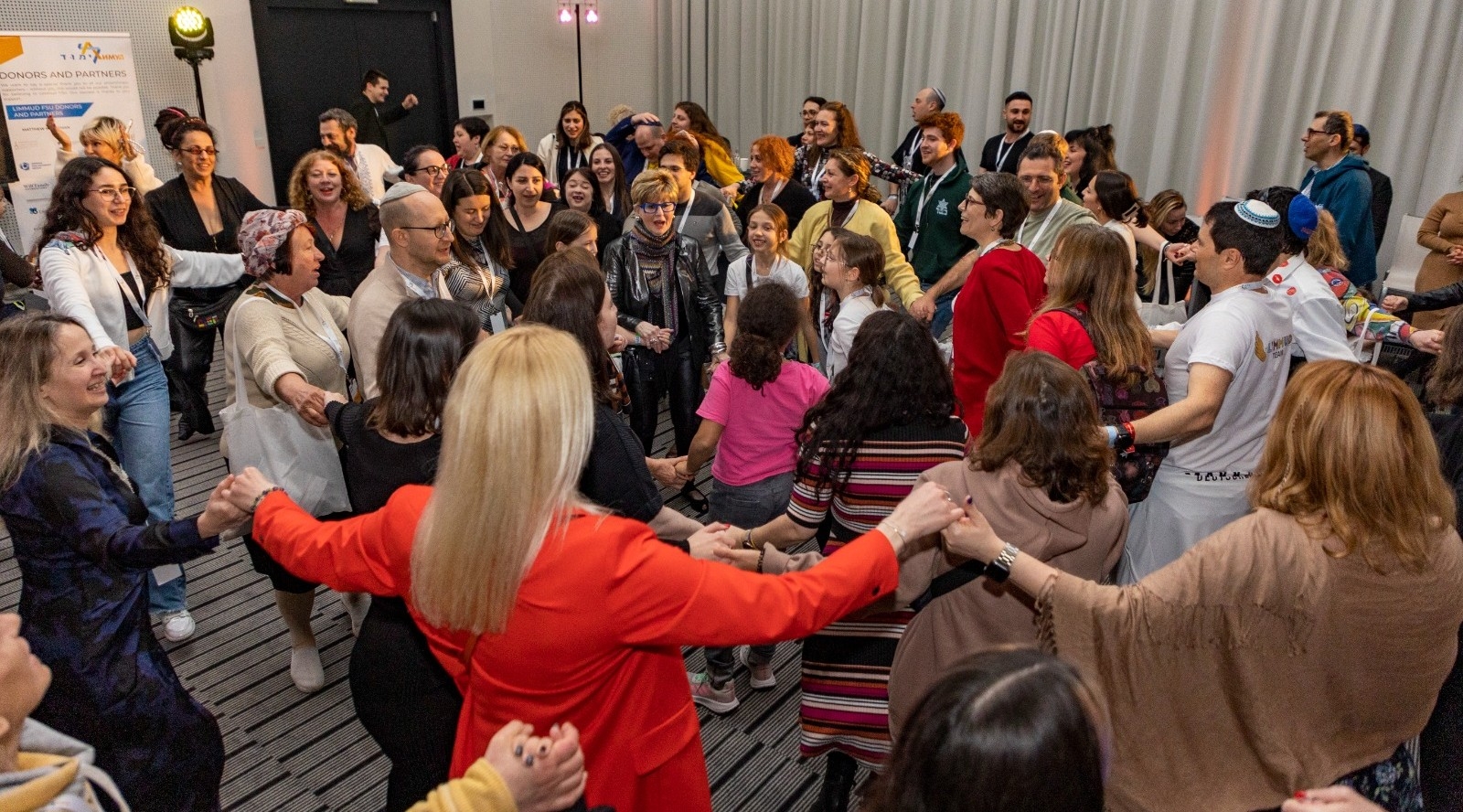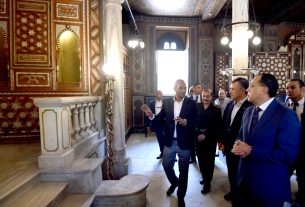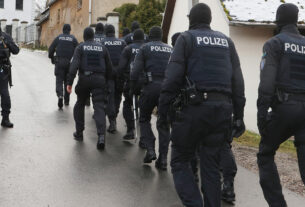BERLIN — It was hard to overlook the symbolism: the city that once was the epicenter of Nazi Germany hosting a massive celebration by Jews with roots in the Communist Soviet Union, which for decades tried to stamp out any hint of Jewish practice or identity.
Over three days, some 750 Jews with ties to the former Soviet Union gathered in Berlin to celebrate Jewish culture, play Yiddish music, take part in conversations about everything from current events to Jewish and Israeli history, and eat, sing and learn together.
The March 31-April 2 conference in Berlin organized by Limmud FSU marked the organization’s first-ever event held in Germany — and its first pan-European conference since a February 2020 event in Vienna held on the eve of the global coronavirus pandemic.
For this weekend, participants from 24 countries converged on a hotel in the German capital, including 50 or so who made the difficult trip from war-ravaged Ukraine. Among them was Olena Kolpakova, 41, who had traveled nearly 48 hours by bus and train to Berlin with her 9-year-old daughter, Anastasia, from Dnipro in eastern Ukraine.
“Our house isn’t destroyed, and our city isn’t occupied. But we still have 10 to 12 air-raid sirens a day,” said Kolpakova, a lawyer and Limmud FSU Ukraine volunteer since 2009. “These people are more than friends for me. I love Limmud and I know everyone.”
The packed program was held mostly in Russian with a smattering of sessions in English.
“This first-ever Limmud FSU conference in Germany is an opportunity to celebrate our rich cultural heritage, learn from one another and strengthen our connections across borders,” said Limmud FSU Founder Chaim Chesler.
Since its creation in 2005 to bolster Jewish connections and identity among Jews from the former Soviet Union, Limmud FSU has held dozens of conferences around the globe that collectively have drawn over 80,000 participants.
Holding a Jewish festival in Berlin was particularly significant, organizers noted. Following the collapse of the Soviet Union in 1991, over 170,000 Soviet Jews emigrated to Germany. That wave of immigration more than doubled the size of the country’s Jewish community, which is now comprised mostly of Jews with roots in the Soviet Union.
Germany is the only country in Europe that has seen such significant Jewish population growth in the last half-century.
Volunteers in Berlin made up a big part of the organizers of the Limmud FSU conference in Germany on March 31-April 2, 2023. (Alex Khanin)
The conference in Berlin was a mixture of celebration, study and culture. Fo Sho, a hip-hop band comprised of three Jewish-Ethiopian-Ukrainian sisters, delivered a rousing performance. Israeli celebrity chef Gil Hovav talked about his famous great-grandfather, Eliezer Ben-Yehuda, the Yiddish-speaking yeshiva student who became the father of modern Hebrew. World Jewish Congress official Lena Bakman spoke of the 400-strong WJC Jewish Diplomatic Corps as the “unofficial foreign affairs ministry for the Jewish people.”
For some participants, such as Dora Haina of Riga, Latvia, the weekend in Berlin marked their first exposure ever to Limmud FSU.
“It’s an unbelievable feeling that everything here is in my language, and that all these people are Jews,” said Haina, 24, who speaks Russian. “I came to socialize and meet new people.”
That’s the point, said Limmud FSU’s longtime chairman, Matthew Bronfman.
“Our inaugural conference in Berlin is a momentous occasion for our organization and the entire community of FSU Jews in Europe,” Bronfman said. “It serves as a symbol of our continued dedication to preserving and celebrating Jewish culture and heritage, while also promoting a sense of unity and connection among our community members across borders and generations.”
Key supporters of Limmud FSU Europe include the Conference on Jewish Material Claims Against Germany (the Claims Conference), Genesis Philanthropy Group, the World Zionist Organization, Nativ-Israeli Prime Minister’s Office, the Jewish National Fund-Keren Kayemet LeIsrael, the Dutch Jewish Humanitarian Fund, the Jewish Agency for Israel, philanthropist Diane Wohl, Bill Hess and others.
“It was a major, successful and very important event for FSU Jews in Europe in general and in particular for the hundreds of refugees from Ukraine,” Alex Mershon, director of Nativ’s Department of Culture and Education, said of the conference in Berlin.
“The resilience and vitality of Jewish heritage were on full display, reminding us that when we come together with open minds and open hearts, there is much we can achieve,” said Marina Yudborovsky, CEO of the Genesis Philanthropy Group. “Let the spirit of this event inspire us to continue to overcome challenges and create positive change in the world together.”
One of the highlights of the Berlin conference was a lecture by Nazi hunter Efraim Zuroff, director of the Simon Wiesenthal Center’s office in Jerusalem. He spoke about his work catching Nazi war criminals in countries where locals often collaborated with their German occupiers and noted that even today nationalism and antisemitism impedes justice for the Holocaust’s victims and their descendants.
“Without political will, there will never be any justice,” Zuroff said.
There was also a lot of talk at the conference about the turmoil in Israel, where a government plan to overhaul the judiciary has prompted protests by hundreds of thousands, including many leading national figures.
“I can’t believe I’m demonstrating against my own government,” said Justice Elyakim Rubinstein, a former Israeli attorney general and vice president of the Supreme Court. “It’s very unusual and heartbreaking in a way, having been a public servant all these years.”

Over three days on March 31-April 2, 2023, some 750 Jews with ties to the former Soviet Union gathered in Berlin to celebrate Jewish culture, play music and take part in conversations about everything from current events to Jewish and Israeli history. Children were among the attendees. (Alex Khanin)
One of the weekend’s most riveting testimonies came from Sonia Tartakovskaya, an 84-year-old Holocaust survivor who last year witnessed the Russian bombardment of Irpin, on the outskirts of Kyiv.
“I don’t remember the war, because I was born in 1939. And in 1941, I was sent to Tajikistan. But this war of 2022 I remember, because I saw the burning houses and I was completely alone,” Tartakovskaya said through a translator.
“On March 17, my neighbor took me to her relatives in western Ukraine, and on March 31, I came to Berlin,” she said. “Today marks one year I’m here, and I deeply appreciate everything the Jewish Agency, the Claims Conference and all other Jewish organizations have done for me.”
Tartakovskaya is among 94 Holocaust survivors who were spirited out of Ukraine and brought to Germany via Poland since Russia launched its war 13 months ago, said Ruediger Mahlo, who heads the German office of the Claims Conference. Before the war Ukraine was home to some 10,000 Holocaust survivors; today, barely 6,500 remain, according to Mahlo.
“Imagine the paradox,” Mahlo said. “Survivors who at a young age had to flee, and now at the end of their lives they have to flee again, from Russia — a country that liberated them — to a country that over 75 years ago wanted to annihilate them.”
Limmud FSU’s co-founder, Sandra F. Cahn, said the participation in the conference of Jews from Ukraine was inspiring.
“Despite the ongoing war in Ukraine, we are heartened to see so many participants from that country joining us for this historic event,” Cahn said. “This conference serves as a powerful reminder of the importance of building bridges between communities and promoting cultural exchange, even in the face of hardships.”




